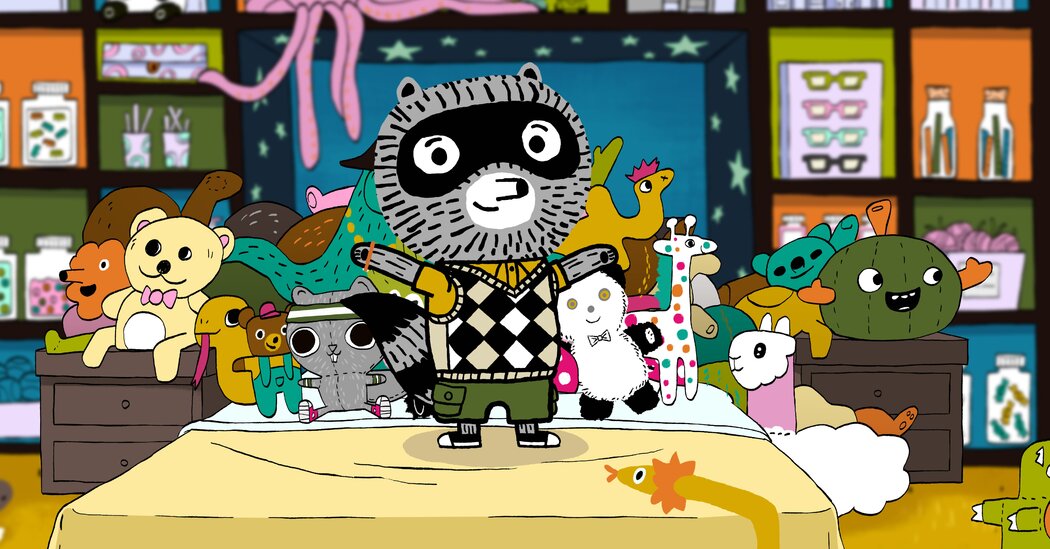Several recent TV series for adults have featured autistic lead characters. A new PBS show looks to expand that trend into children’s programming.
Carl isn’t unlike many small children you may know. He balks when his mother suggests he get rid of some of his many stuffed animals. If his friends want to play a game that isn’t his favorite, he feels frustrated. And when he realizes he has left one of his prized toy collections away from home, he needs help falling asleep.
But Carl also differs from most of his peers, and not just because he is a fuzzy little raccoon. Carl is autistic, with reactions that are often longer-lasting, more intense or more socially awkward than those of his pals. As the title character in PBS Kids’ animated television show “Carl the Collector” — and the first autistic lead character in a PBS children’s series — he offers young audiences a rare close-up view of autism spectrum disorder, demonstrating to those who are not on the spectrum, and to those who are, how they can help one another navigate childhood challenges.
“The stories overall are just human experience, stories for everybody,” said Zachariah OHora, the best-selling children’s author and illustrator, who is the creator of “Carl the Collector.” “We just get to see it through all these different lenses.” (The show began streaming last week at PBSkids.org and airs on PBS stations.)
Geared toward viewers ages 4 to 8, the series debuts with a story in which Carl figures out that he can make a photo scrapbook of the plush toys he seldom plays with, which makes them easier to give away. In another episode, when Carl insists on his choice of what to play and when, his buddies persuade him that they should devise a rulebook that includes taking turns.
“So much of the strategies and techniques that are used to support and help autistic individuals are really just extensions of good practice,” said Stephen Shore, an autistic professor of special education at Adelphi University and an adviser to the show.
That support seems especially important now. The Centers for Disease Control and Prevention estimates that one in 36 American children is now diagnosed with autism — up from one in 150 in the year 2000. Although medical experts attribute the rise partly to increased testing and broader diagnostic criteria, the disorder remains a major concern for parents.
